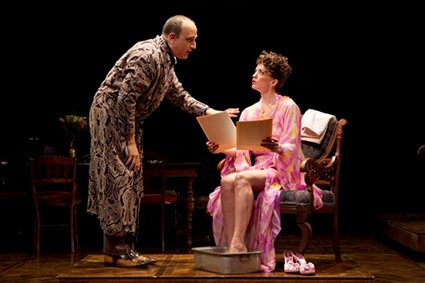Theater Review: Brooklyn’s ‘February House’ is a beguiling tapestry

AP%20Photo.jpg
By Jennifer Farrar
Associated Press
Once upon a time, there was a rundown Victorian house in Brooklyn Heights filled with some of the greatest literary and musical talent of the 20th century. But this is not a fairy tale. The true story of this early 1940s international literary commune has been beautifully fictionalized for the stage in a fresh, humorous musical tapestry called “February House.”